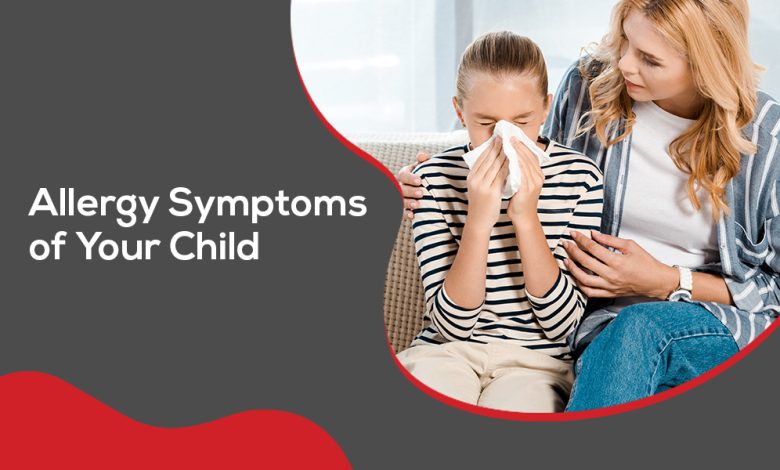
Children may suffer from allergies though they are very common among kids who have a family history of allergies. It is not possible for parents to control everything for children and so, they need to focus on their children carefully. Detecting allergies at an early stage can improve quality of life of your child and decrease absenteeism in school.
Symptoms of children
- Difficulty in breathing or asthma
- Coughing, sneezing, itchy eyes or runny nose
- Hives or skin rashes
- Stomach upset
Allergy triggers in kids
Foods: eggs, milk, milk products and peanuts
- Indoors: mold, dust mites, fur or pet or animal hair
- Outdoors: insect bites, plant pollen, stings or tree pollen
- Irritants: car exhaust, cigarette smoke, perfume
When your kid suffers from some allergy, you may book an appointment to visit an allergist. Maintain a track of all the symptoms your child suffers from and the reasons behind them.
Some allergic conditions in children
- Hay fever or allergic rhinitis – It is a common disease for children that occur from allergies. Some symptoms are – itchy or runny nose, nasal blockage, sneezing and postnasal drip. If your kid has allergies, he may have red, itchy or water eyes and severe ear problems. Though it is commonly called hay fever, allergic rhinitis cannot be triggered through hay and won’t cause fever.
- Nasal congestion – Allergies are common cause of severe nasal blockage in kids. If your child’s nose is congested in a way that he/she breathes through the mouth, then this may cause the child not to get proper rest during the night. When mouth-breathing and congestion are not treated on time, they may affect growth of teeth and face bones. With early treatment, allergies which led to nasal blockage may be prevented.
- Ear infections – Allergies can cause inflammation in your area and may lead to fluid accumulation. It can be the reason for decrease in hearing and further infection in the ear. If your child’s hearing has been impaired due to any reason, then they can suffer from poor speech. Allergies can further cause ear itching, popping, ear aches and fullness. Make sure you take the child to an allergist in case there is some need for testing and treatment.
- Food allergies – When a mother breast feeds, the sensitive kids may have allergic reactions to certain foods. Babies need to be tested for allergies and eliminating some foods from mother’s diet can give relief to the child. Common allergies in kids are milk, peanuts and others include – fish, shellfish like crayfish, crab, shrimp and lobster, eggs, tree nuts, wheat and soy. Severe reactions occur from fish, shellfish, tree nuts and peanuts and the allergies may last for a lifetime.
If parents have food allergy, then they should know about the possibility of anaphylaxis. This is a life-threatening reaction which can impair breathing and lead to sudden drop in blood pressure. So, children who suffer from food allergies have been prescribed epinephrine or adrenaline with an auto-injector when the symptoms gradually develop.
- Allergies and school – You should inform the school about the kind of allergies your kid suffers. If the child has extreme allergy or asthma, then provide a copy of action plan to the school. Do not forget to discuss about your kid’s medication such as epinephrine during an emergency. When your kid has asthma or allergy symptoms when at school including coughing, runny nose, difficulty breathing, sneezing or rashes, it may be class pet.
Sports and physical education are a major part of school day for children. Having asthma won’t mean eliminating these activities and they need to take part in any sport. The symptoms of asthma during exercise denote bad control and your kid should take asthma medications daily. Kids can suffer from allergies at school and so, they may have to sit away from blackboard to prevent irritation.
Are you suspecting your kid is suffering from some kind of allergy? If yes, then the symptoms might denote serious concern for them. You can take your child to a nearest clinic and perform “allergy test near me.” This way, you will know if your kid is allergic to something specific.


